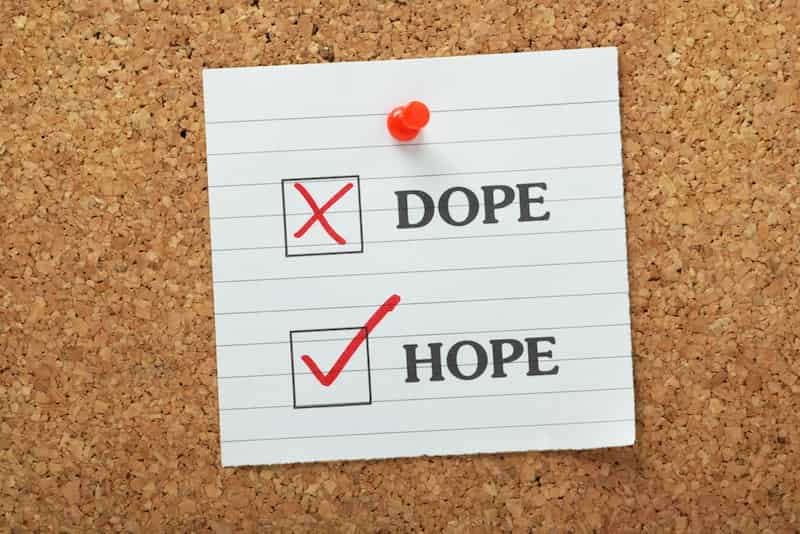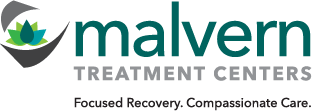We gave the whole spiel about how important language is when we defined addiction. We’re not going to bore you by rehashing it here.
We’re going to get straight into what you came to read – what’s the definition of recovery?
While this may seem like a straightforward question, there are a few different angles to consider. After all, recovery means different things to the recovering alcoholic and the family. Likewise, it means different things to clinicians and the dictionary.
Join us on an in-depth exploration of what recovery really means as we look at all these different sources – then let us know your own recovery definition!
There’s a lot of information in this article. If you’d like to skip to a particular section, just click on the link below:
- The dictionary definition of recovery
- The clinical definition of recovery
- The addict’s definition of recovery
- The family’s definition of recovery
Dictionary Definition of Recovery
According to the all-knowing minds at Google, recovery’s defined as –
/ri-kuhv-uh-ree/ a return to a normal state of health, mind, or strength.
Simple and easy. We like it! Let’s drill down a bit and look at what this definition means on a few different levels.
First, recovery is defined as “a return to a normal state.” This is a pretty important point. Recovery isn’t only about getting better…it’s about returning to a previously lost state.
What if you never had this state of health to begin with? Can you still recover? According to many 12-step interpretations of sobriety, which we heartily agree with, addiction and alcoholism involve a lot of character defects that are present long before we pick up a drink or drug.
It’s an interesting question that, ultimately, doesn’t have an easy answer. Depending on your point of view, the answer could be both yes and no. We’re not going to wade into that muck right now…but expect an article exploring 12-step and therapeutic recovery in the future!
The dictionary definition goes on to state recovery involves “health, mind, or strength.” This is important because it defines what recovery includes and, as importantly, what it doesn’t include.
In other words, recovery’s about getting better physically, mentally, emotionally, and even spiritually. It’s not about getting a good job, making money, getting a cute significant other, and so many of the other things we typically see portrayed by the media.

Think about it like this – what’s the typical “movie recovery narrative?” It usually involves someone going to treatment, facing their demons, getting out, and succeeding at life.
While that’s our sincerest hope for everyone who struggles with addiction, it’s not the heart and soul of recovery. Rather, recovery’s about growing as a person. It’s about removing drugs and alcohol and improving
- Physically (exercising, eating healthy, etc.)
- Mentally (changing faulty coping mechanisms and destructive thought patters)
- Emotionally (changing from selfish to selfless)
- Spiritually (growing a connection to a God of your own understanding)
Okay, having exhausted the dictionary, let’s take a look at how recovery’s defined by therapists and other addiction treatment clinicians.
Clinical Definition of Recovery
According to SAMHSA, one of the leading sources for clinical treatment and recovery information, recovery is –
A process of change through which individuals improve their health and wellness, live a self-directed life, and strive to reach their full potential.
Four major dimensions that support a life in recovery:
Health – overcoming or managing one’s disease(s) or symptoms — for example, abstaining from use of alcohol, illicit drugs, and non-prescribed medications if one has an addiction problem — and for everyone in recovery, making informed, healthy choices that support physical and emotional wellbeing.
Home – a stable and safe place to live.
Purpose – meaningful daily activities, such as a job, school, volunteerism, family care-taking, or creative endeavors, and the independence, income and resources to participate in society.
Community – relationships and social networks that provide support, friendship, love, and hope.
Just like the clinical definition for addiction, that’s a lot to take in. Behind all the words is an even more important question – what the hell does it mean and how can we apply it in our daily lives?
Rather than break SAMHSA’s definition down word for word, let’s look at their four dimensions of health, home, purpose, and community.
Health
This is the part of the clinician definition that matches most closely with the dictionary definition of recovery. There are a few important differences though. Consider the following:
- According to SAMHSA, you can overcome or manage the disease of addiction. This suggests both abstinence-based recovery and medication-assisted recovery.
- According to SAMHSA, recovery allows people to make informed and healthy choices which support their physical and emotional wellbeing.

- This is important for a few reasons. First, it includes both physical and emotional recovery. Rather than narrowing their focus to one areas, they include two major areas everyone experiences in their life.
- Second, it doesn’t require someone to adhere to a strict set of guidelines. Rather, it focuses on what individuals define as “informed and healthy choices.”
This is great stuff. It’s nuanced and detailed information and one of the reasons SAMHSA’s become a go to source for all things substance abuse recovery.
Home
According to SAMHSA, a home doesn’t have to be living with your family or your significant other. Rather, it’s simply “a stable and safe place to live.”
This is important when you consider the vital role of recovery houses. Sometimes called halfway houses or sober homes, recovery houses are a structured form of post-treatment living that dramatically increase rates of sustained recovery.
Not only do they offer the stability and safety mentioned above, but sober homes also foster a sense of community and accountability that are necessary to make it through early-recovery.
Purpose
This one’s simple – a life without a purpose is, well, purposeless. It lacks definition or any guiding force. It’s not so much a life as it’s a state of existing.
Recovery demands purpose. Thankfully, that purpose is to help others. While this often takes the form of 12-step work and helping other people recover from addiction, it doesn’t have to.
Helping others could be as simple as helping an older person carry their groceries to their car. It can be as intensive as volunteering at a local hospital or charity.
The form doesn’t matter as much as the principle matters – people in recovery need to live for a larger purpose. Once this happens, so does maturity and emotional growth.
Community
The clinical take on Community and Home are tied together in some interesting ways.
SAMHSA touches on the need for healthy relationships. Guess what? Sober living helps grow these relationships and strengthen these bonds. It helps addicts in early-sobriety lean on each other for emotional and spiritual support.

SAMHSA goes on to note that community’s vital for offering support, friendship, and a sense of purpose. Again, these are all present in recovery houses.
It’s no mistake these two areas are intricately tied together. Home has always offered a sense of community, just as community has always offered a sense of home. They’re powerful tools to help fight the isolation so commonly found in active addiction.
Alright, we’ve seen all there is to see for the clinical take on recovery. What does recovery mean for the addict or alcoholic living a clean and sober life?
An Addict’s Definition of Recovery
This is where we get to the heart and soul of recovery. What’s the definition? What does sobriety really mean? There’s no better way to find out than to ask an addict.
We asked someone in recovery from substance abuse how they would define their journey. They said –
I mean it’s hard to put a single label on what recovery is and isn’t. I’ve left behind binges, black outs, lying, stealing…I’m finally living my life without mind or mood altering substances. That’s part of it for sure, but it’s also about my soul. That sounds corny but it’s true. I’m finally connected to something more important than myself. I’m finally giving back to others. I’m finally about to form a real connection with another human being and with a spiritual power greater than myself.
That’s powerful stuff. It’s also complex and not that easy to quantify. Rather than saying recovery’s about X, Y, and Z, it looks like recovery’s about a lot of interconnected and dependent parts.
Let’s take the first part of our recovering addict’s definition and look at it. Recovery is, or course, about living free from drugs, alcohol, and all the negative consequences and actions that come along with them.
It’s important to note here that medication-assisted therapies can also be an example of recovery. The person we spoke to didn’t have experience with those, but that isn’t to say they don’t help people.
Onto the second part of the definition – recovery’s about more than simple abstinence from chemicals. It’s about contributing to life rather than taking from it.

Our sober addict explains this in terms of giving back and helping others. This is, without a doubt, a requirement for recovery and sobriety. The cool thing we’ve learned here at Malvern is that this can take a number of different forms.
Giving back and helping others looks different depending on who’s doing it. The clinical, SAMHSA definition of recovery touched on this a bit and here it is again.
It doesn’t matter if you give back by becoming involved in AA, NA, CA or by volunteering at a homeless shelter. It doesn’t matter if you help others by mentoring young people or by doing pro bono work in your field.
In other words, it doesn’t matter how you’re giving back – it just matters that you are.
Finally, the spiritual or religious aspect of recovery is touched on. Once again, this looks different for just about everyone in recovery. While some people stick to organized religion, others thrive on a personal version of God.
There’s a great quote from 12-step literature that sums up how spiritually works for people in recovery. It goes a little something like –
“Do I now believe, or am I even willing to believe, that there is a Power greater than myself? As soon as a man can say that he does believe, or is willing to believe, we emphatically assure him that he is on his way” (The Big Book, pg. 47)
Now that we’ve asked an addict what recovery means, let’s ask the family of an addict.
A Family’s Definition of Recovery
What’s recovery look like for those who don’t directly struggle with substance abuse, but are directly impacted by it? In other words, how’s recovery defined by the family of an addict or alcoholic?
Well, we sat down with one such family and asked them, pointblank, what recovery meant to them. The mom had a pretty profound answer –
The addict in my life, the person I’ve loved through everything, is back. I don’t lie awake at night worrying that they are in serious danger or hurting themselves. I know they are finally listening to me when I tell them I care. Things are so much better than they were. The constant fear and panic are gone.
That doesn’t mean everything is amazing all the time. They still have a lot of work to do and you know what? So do I. We get to do that work together though. We get to grow as a family for the first time in years.
There are a few key parts of her explanation that stood out to us.
First, she noted how different things are now that her loved one’s sober. The hopeless situation of loving an addict in active addiction is over. It wasn’t easy to get through, but they did.
And that’s vital to remember. No matter how bad things are, there’s always hope and recovery is always possible.

Next, she touched on how, just because her loved one’s in recovery, everything isn’t perfect. That speaks volumes. Recovery’s a process. Things don’t magically get better overnight. Rather, they start improving slowly but surely.
What’s that famous saying? Progress not perfection, right?
Finally, she hit on how both her and her loved one get to work together to rebuild their family. This goes back to recovery being a process. The real work starts after your loved one gets sober. That’s when you all get to work together as a family to become healthy and happy.
What’s Your Definition of Recovery?
We’ve just spent the last 2,100 words exploring what recovery really looks like. We explored how it’s defined from a dictionary, clinical, personal, and familial standpoint. We dove into a detailed examination of what recovery looks like from every angle.
What do you think? Do you agree? Do you think we’re crazy? Let us know! Leave a comment here or say something on Facebook!
